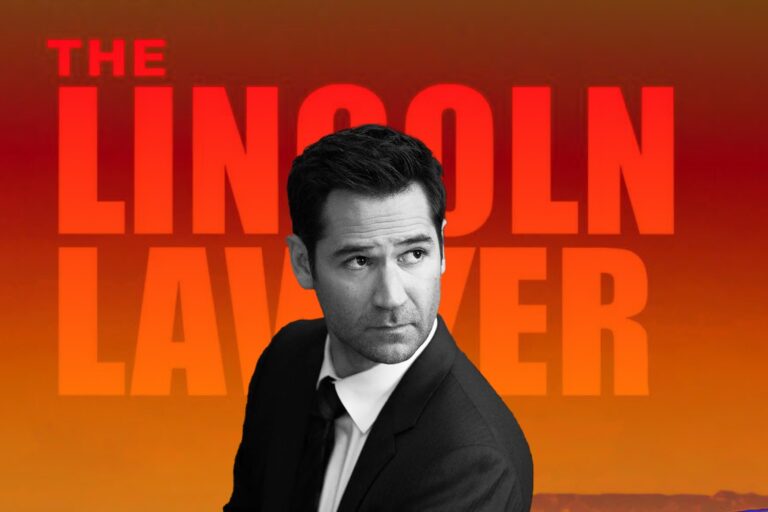David Greenberg: Leveraging Human Capital to Thrive in Government Contracts
When it comes to government contracts, contractors often limit their chances of winning by thinking they must stick to their expertise and only bid on what they are good at. However, for some contracts, you just need to find subcontractors who are compatible with the tasks and position yourself as the project manager.
This is exactly what David Greenberg has been doing to succeed in government contracts. Starting with his tutoring company, Parliament Tutors, which has always been at the core of his services, David is now able to manage contracts in various fields by leveraging a network of subcontractors.
Before diving into his approach to human capital and other key strategies for growth in government contracts, let’s take a look at his 10-plus-year journey to becoming a well-seasoned contractor.
David Greenberg – A Well-Seasoned Player
David Greenberg launched his education company right after college in 2009, initially connecting teachers with students for private and home tutoring. As the business grew, he expanded to offer services to schools and nonprofits.
One day, a government agency reached out, asking if he was registered in SAM (the System for Award Management). At the time, David had no idea what SAM was, but a quick search introduced him to the world of government contracts.
He recalled, “I think one day we had a call from a government agency asking for a service and asking us, ‘Are you registered in SAM?’ And I’m like, ‘What’s SAM?’ I did a search and discovered the System for Award Management.”
Although there weren’t any contracts perfectly aligned with his offerings, he spotted opportunities where his company could add value outside its traditional services. After a short period of time, they won their first government contract.
“At first, our only clients were commercial, private students, and families, schools. And then, yeah, when we discovered the ability to do business with the federal government, it lent itself to what we do best. And that’s not necessarily sales; it’s really, outlining programs, project management, responding to requests for proposals or requests for quotes, and building teams that are uniquely positioned to provide those specific services,” he said.

David Greenberg’s company has expanded far beyond its educational roots. Recently, they secured a contract providing quarantine lodging for 80 National Guardsmen in Seattle, managing everything from negotiations with Marriott to fulfilling the government’s needs. This is just one example of how David has broadened his offerings, tapping into new opportunities beyond traditional education services.
Short-term lodging is also a niche they’ve successfully developed, which came from earlier attempts to work with long-term office property deals. After realizing those contracts took too long to materialize, they shifted focus to provide temporary housing for law enforcement, FEMA disaster responses, and scientists. This pivot allowed the company to respond to more immediate needs and capitalize on faster-moving contracts.
“We pivoted into short-term lodging, which was sometimes for law enforcement personnel and FEMA disaster responses, or for scientists conducting studies in national forests. We were able to procure lodging on a short-term basis for them, and that segued a little bit into hotel lodging, which is used for some obvious reasons,” David shared.
Looking ahead, David is positioning his company to expand into construction-related services. By targeting auxiliary services such as paving, small engineering, environmental work, and electrical services, he hopes to eventually secure larger construction contracts, where his team can manage and oversee entire projects.
“For these construction opportunities, I think, no matter who you’re dealing with, there are teams involved and people responsible for different parts of the project. This won’t lend itself perfectly to what we do, but hiring a project manager and then providing oversight over that could make perfect sense for us,” he stated.
Human Capital Philosophy to Secure Government Contracts
David places a strong emphasis on human capital, using this approach to pursue contracts that may fall outside his immediate expertise.
According to David, he has a small administrative team that supports him in his efforts to bid on government contracts daily. Their goal is to submit at least one proposal each day, which adds up to around 20 to 25 proposals each month.
As mentioned before, these proposals cover a wide range of disciplines, from traditional education services to scientific and construction-related services, essentially encompassing everything that falls under government contracts.
Although education and training are the primary focus of his company, David highlights the significance of collaboration and partnerships. He utilizes his team’s expertise in proposal responses to help other companies, especially those with limited technical skills, in developing their bids. This teamwork not only broadens their service offerings but also enhances their competitive edge in the government contracting arena.
He stated, “So while our specialty and our core capabilities still remain in education and training, we’re leveraging our ability to partner and identify the right partner, and leveraging some of our experience responding to these proposals and helping other sometimes less technical companies respond to these proposals, and priming everything under.”
Human capital is also an effective method when they consider bidding on contracts.
While many people look at things like leveraging NAICS codes or examining the past purchasing history of agencies, David will look at his network of professionals to see if he has an ideal subcontractor to perform the work.
“What we sell and what we’ve been doing forever is human capital. I mean, even when we started selling tutoring services, I had to find a chemistry tutor in Midland, Texas, and then find someone else—a SAT math tutor in Burlington, Vermont—and someone else in Mallen, Texas,” he explained.
He continued, “So, the nature of what we did is really recruiting professional development management over hundreds and hundreds of entities or subcontractors.”
As noted by David, Their primary focus is on determining whether they can subcontract work to an individual, a company, or even multiple companies and coordinate their efforts. Project management services and capabilities are central to what they offer, ensuring they can effectively manage the various subcontracted tasks.
David’s Criteria for Evaluating Contract Opportunities
There are many opportunities in government contracts and having a standard bar is important to filter out the most suitable ones. David is also taking an opposite route he has to evaluate contracts.
As shared by David, his team views their time as a valuable asset when evaluating contract opportunities. They focus on areas where many others might hesitate, such as Lowest Price Technically Acceptable (LPTA) contracts, because they recognize that the government might not scrutinize their lack of experience in specific areas, like logistics for shipping containers, as harshly.
By demonstrating their experience in contract management, identifying the right partners, and showcasing their credentials, they believe they have a legitimate chance of winning these contracts.
“If we can show them that we have the experience in managing contracts, show them that we’ve identified the right partner, and show their credentials, we actually have a chance. And we’re again fortunate enough to win that LPTA contract,” he concluded.
Their evaluation criteria are critical in deciding whether to pursue certain opportunities. While they are strategic in their approach, they are also willing to take calculated risks on contracts where they might not be perfectly positioned to win.
He claimed that “When you’re submitting 20 proposals a month, we’re really only expecting to win a quarter of those. It gives us access to so many different other opportunities and then builds our past performance. We then piggyback on our own past performance to bid on more relevant opportunities that are similar in nature to those requirements or with similar contracting officers or agencies, etc.”
Volume-Based Approach – How to Determine Pricing in an Unfamiliar Space?
Pricing is important when you bid on a contract that is less familiar than your previous ones. You don’t want to lose the bid because of unreasonable pricing, and you also want to ensure that the margin is sufficient for you to make ends meet. There are many ways to determine your pricing; in David’s case, he is taking a volume-based approach.
Before submitting a bid for a contract, he carefully considers a few important factors.
“First of all, I just have to make sure that you’re not taking it back, and number two, how much work this is actually going to take. Is this a subcontract? Even if it’s a subcontract, you’re going to find yourself building out weekly modifications or, at the very least, going to Wide Area Workflow and submitting your monthly invoices there,” he stated.

He also points out the financial implications, such as how long he needs to front costs and the payment terms associated with the contract. These elements are crucial for determining his markup.
He further explained, “There is a time investment, and how long do you have to put up your money for? Do you put up money, and what kind of payment terms do you have? I think these are all considerations that have to go into your markup.”
Ultimately, David focuses on the effort he puts into bringing his team together and preparing the proposal. As a project manager, he worries about losing the bid if he prices it too high, especially since his profit margins are already slim.
That’s why his company uses a volume-based approach to bidding. This method allows them to stay competitive even when other companies may be reluctant to take on similar contracts.
“As a project manager, that’s a lot of what we do. I don’t want to lose this because I’m bidding too high. So, yeah, our margins have been quite slim, but again, as you see, we’re taking a little bit of a volume-based approach here—many other companies probably just don’t have the stomach for it,” he noted.
While not everyone who adopts this strategy sees success, David has managed to make it work. It helps him diversify his revenue streams, so if one area experiences a downturn, the impact is lessened because he has business in many different sectors and agencies.
He notes that his sign language interpretation services, an extension of his tutoring business, have been significantly impacted by the coronavirus pandemic, as many bases are closed, and contractors cannot assist deaf employees working remotely.
To address these challenges, David has diversified his offerings by leveraging environmental services, lodging, and auxiliary construction services.
“Fortunately, we are leveraging a lot of environmental services and a lot of lodging services, along with some auxiliary construction services, and that’s proven very valuable. If we had been fully invested in our sign language interpretation services, we probably would have seen a much starker drop than the drop we already experienced over the past 12 months,” David expressed.
A Vast Array of Wisdoms – David’s Tips for Newcomers
The part above are worth noting but there are more insights from David that contractors need to learn from him.
Don’t Wait to Respond to Opportunities and Diversify Your Offerings
David encourages newcomers not to wait around for the perfect opportunity that fits your current expertise, as you might find yourself waiting indefinitely. Instead, he advocates a mindset of adaptability and exploration. Embrace the flexibility in your offerings and seek out related opportunities where you can apply your existing skills.
By being willing to pivot and extend your resources, you open the door to a variety of possibilities. This mindset will help you broadens your horizons and fosters meaningful relationships with agencies that could have other relevant needs.
He stated, “You’re going to have to find some flexibility in your offerings and determine what you’re well positioned to do within the scope of what you already offer. Look for similar opportunities and see how you might be able to pivot or extend some of your resources to respond to those. This can hopefully open up relationships for you with that agency, which is obviously relevant to your space or will have other needs in your space.”
Don’t Be Intimidated by the Size of the Documents
Next, David touched on the importance of reading the documents and being intimidated by the size of those papers is not a solution here. Instead, focus on the key sections—like the statement of work and evaluation criteria—that truly matter for your bid.
“I remember when I was responding to my first proposal, I had no idea what I was doing. I was reading over this 60-page document and really just don’t be intimidated by the size of that document,” he recalled.
David added, “You learn how to navigate those and read them really quickly, focusing on the statement of work, evaluation criteria, or whatever you determine is going to be the most important section to you. You’ll be able to turn these out quickly, as a lot of it is just government jargon that you’ll learn is template in every single one of these.”
The Beauty of Teaming
He acknowledges that going solo in the world of government contracting is nearly impossible. It’s essential to find the right partners who can complement your strengths. Even if you think, “Why would this person want to team up with me?” remember that they might be unaware of the opportunity you’ve uncovered. By sharing the opportunity, you position yourself as a valuable connector or broker in the relationship.
“So, at the very least, you brought it to them, and you might just find yourself being a contractor or broker taking a little piece on top of what you’re offering to your counterpart,” David said.
Don’t Neglect BPA and MATs
David discovered that, in addition to the commonly used LPTA method, there are numerous overlooked opportunities in government contracting.
Often, he utilizes traditional resources such as Beta.SAM, FedBizOps, and FedConnect to find these opportunities. However, he learned a valuable strategy that he hadn’t initially considered: responding to Blanket Purchase Agreements (BPAs), Multiple Award Task Orders (MATs), and sources sought notices.
Since there are typically fewer bids for these contracts, he increases his chances of winning the contract.
David stated, “Responding to those will give you access to nonpublic contracts as well, which are obviously more advantageous because you’re more likely to win when there aren’t 100 bids.
Don’t Take Granted of Being a Small Business
There’s a common trend where individuals rush to obtain certifications, such as women-owned or minority-owned business status. These people tend to forget the privilege they have when being certified as a small business, just as David’s.
“I think people definitely undervalue the leverage you have with a small business, especially if you can actually not just be a broker but actually perform some of those services. I think people are discounting too quickly their ability to win those and their ability to get paid well on those,” he said.
Stay Away from Things that You’re not Good at

David stresses that understanding your strengths and weaknesses is crucial in business. While he has managed technology in his own company, he’s found it often leads to chaos. Therefore, he intentionally avoids tech management for government agencies. Instead, he focuses on areas where he excels, particularly in human capital and overseeing subject matter experts.
He insisted, “You got to recognize your limitations and, again, invest in what you know you’re going to be able to perform well in and have a shot at winning.”
Explore Further Opportunities with Already Secured Contracts
David suggests that if you have an existing contract, a smart strategy is to explore potential extensions or additional opportunities associated with that contract. He recommends researching the contracting officer’s other solicitations on Beta.SAM, especially since they are already familiar with your work and can vouch for your reliability. Even if the new opportunities fall outside your usual scope, the established relationship can work to your advantage.
“Even if it’s something outside of your traditional offerings, this person knows you as a responsible offerer. So, at the very least, you have some connection there. It’s another little hack that you might not hear on your traditional channels,” he elaborated.









